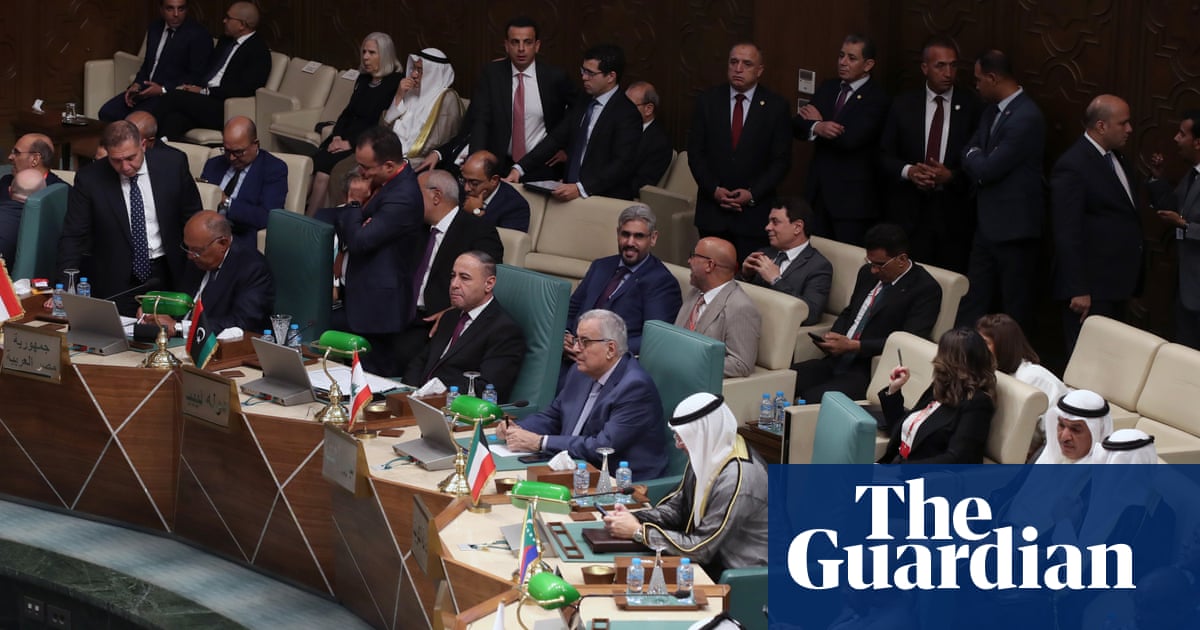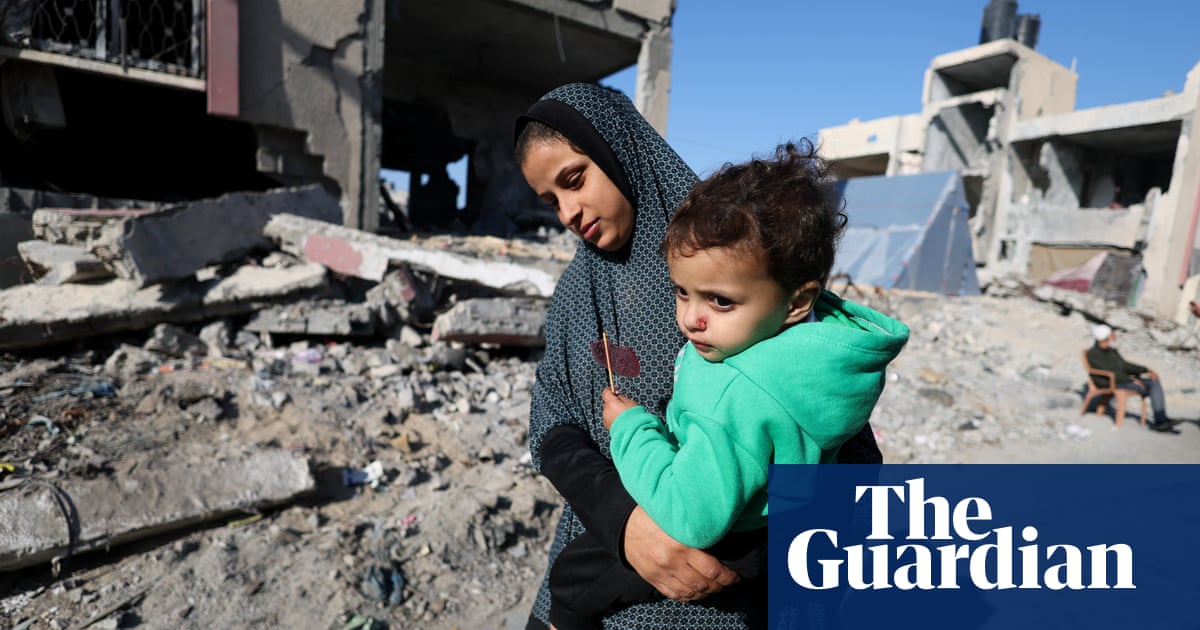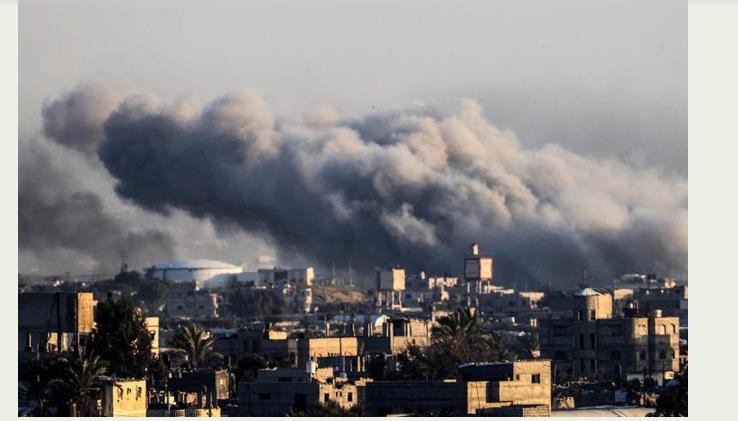
Arab foreign ministers have urged Israel to meet its international obligations as an occupying power and return to negotiations on a two-state solution that provides a viable state for Palestine.
At an emergency meeting of the Arab League in Cairo on Wednesday, ministers underlined “the importance of resuming the peace process and starting serious negotiations between the Palestine Liberation Organization and Israel”.
The move is part of a twin track – and largely Saudi-led – initiative designed to de-escalate the crisis, but also make Israel accept that its refusal to negotiate has led to the collapse in relations with Hamas.
The Biden administration has privately expressed disappointment that Saudi Arabia – far from condemning the brutal attacks by Hamas at the weekend – is maintaining that the violence would not have occurred if Palestinians had been granted the independent state they have demanded for decades.
The Saudi stance is being compared unfavourably by Washington to the willingness of the United Arab Emirates to explicitly denounce the crimes committed by Hamas. The UAE fully normalised ties with the Israel after the 2019 Abraham Accords, but Riyadh has not, despite dangling a potential rapprochement.
Since the unprecedented Hamas onslaught on Saturday, Faisal bin Farhan, the Saudi minister of foreign affairs, has been on the phone to Gulf and western leaders – including speaking to the UK foreign secretary James Cleverly – seeking to de-escalate the crisis. A Saudi statement afterwards urged the international community “to come together to meet the aspirations of the brotherly Palestinian people”. The read-out also referred to the need to protect unarmed civilians as a result of the military operations.
The initial Saudi statement blamed the escalation on “the continued occupation” and “the deprivation of the Palestinian people of their legitimate rights”.
Saudi Arabia also played a large part in the joint EU-Gulf Cooperation Council that called for a two-state solution. Riyadh is understood to be unimpressed by the US decision to send an aircraft carrier to the region.
In a sign that Saudi is not going to abandon the Palestinian cause, Crown Prince Mohammed bin Salman has already called the Palestinian Authority president, Mahmoud Abbas, to emphasise that the Gulf kingdom is “making every possible effort to engage with all international and regional parties to halt the ongoing escalation and prevent its further spread in the region”, stressing the importance of sparing the lives of civilians.
The crown prince also reiterated the kingdom’s unrelenting support for the Palestinian people “in their pursuit of their legitimate rights”, without mentioning the creation of a Palestinian state.
Although Saudi Arabia is an autocratic state that does not tolerate criticism of the royal family, its diplomats are alert to Arab public opinion – one reason why it has not yet been willing to join the UAE, Bahrain, Morocco and Sudan in normalising relations with Israel.
Riyadh has been negotiating its own version of the accords with the US, but it says it would not sign a deal that weakened the authority.
Saudi Arabia has contacts with Hamas’s political wing, mainly via Qatar, but has no affinity with its leadership. It has not yet accused Hamas of trying to end reconciliation in the Middle East or alleged that Iran was behind the weekend attack. Iran has told Saudi not to strike a deal with the US, warning Saudis would be backing the wrong horse.
Saudi newspapers have become more explicit in saying there will be no peace in the region unless Palestine is granted its own state – even if they are reluctant to accuse Hamas in public of plotting to sabotage a possible three-way peace deal between Israel, Saudi and the US, which Hamas feared might have ditched lingering Palestinian hopes of a two-state solution.
Faisal Abbas, the editor-in-chief of the Riyadh-based Arab News, said a specialist team at the Saudi ministry of foreign affairs had for the past two years been working on an “Arab peace initiative 2.0” designed to provide incentives for both sides.
He said the kingdom had always made it clear that any wider three-way normalisation deal involving Saudi, the US and Israel would have to include specific progress on peace.
“Now we must act quickly to avert disaster. The Rubicon has been crossed. No one is expecting a repetition of previous scenarios which is a few days of escalation, calls for self restraint, a ceasefire agreement or Qatar or Saudi offer to rebuild Gaza,” he said, cautioning that a “patch-up solution” was insufficient as each cycle of violence is becoming worse.
Abbas acknowledged the difficulty of de-escalating the current crisis. “We are dealing with the most rightwing government in Israel history and Hamas has never known to be reasonable since 2007,” he said.
Before the Hamas assault, he said, the stars had been aligning for a three-way deal that would meet Saudi security needs, endow Joe Biden with a foreign policy legacy and potentially end decades of conflict over Palestine.
“The crisis sets us back a few weeks, a few months – or even back to the 70s,” he said.











